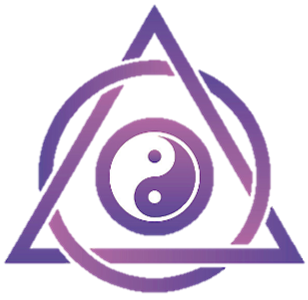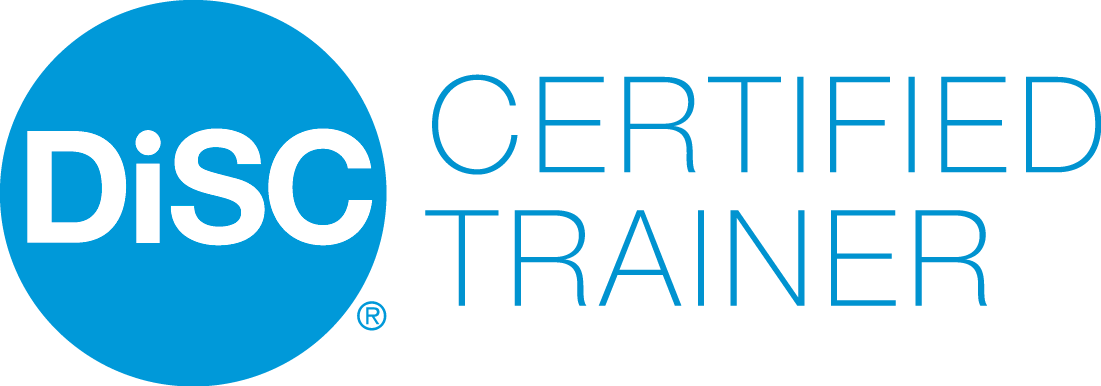I'm an SC - what about you?
I believe that we all have unlimited potential, it is finding the right tools and techniques to unleash this. That is why within my own practice I use a mixture of the psychometric tool, Everything DiSC® and coaching to deepen self awareness, so you can appreciate your own unique attributes, and then harness this to create a career and a life that you love. Knowing what gives you energy means you can utilise your own uniqueness to be able to implement simple strategies to show up in all situations in a way that is authentic to your true self. You will find you will achieve even greater results and feel genuinely confident in your actions, decisions and communications.
I am really passionate about what I do and believe that being able to show up as your genuine self, and if you are a manager or leader, foster an environment that acknowledges and appreciates individuals’ strengths and unique attributes, is really important.
In this post, I want to concentrate on giving you lots of information about Everything DiSC®, starting with a short history and general overview, the reliability and validity of this psychometric test and why you might want to consider Everything DiSC® for your own personal development.
DiSC - a short history lesson and overview
The origins of DiSC® started with the work of American psychologist William Moulton Marston in 1928 when he published ‘Emotions of Normal People’. (He is also the creator of the Wonder Woman character - which is a fact I love!)
Marston’s research focused on ‘normal people’ with ‘normal behaviours’. His research suggested that individuals could be categorised within 4 quadrants which describe a behavioural pattern depending on if the individual preferred to be active or passive and if they found the situation they were in to be favourable or antagonistic to them. These behaviours were originally classified as:
Dominance - activity in an antagonistic environment
Inducement - activity in a favourable environment
Submission - passivity in a favourable environment
Compliance - passivity in an antagonistic environment.
Marston’s theoretical work has been developed since 1928 and in 1940 the first DiSC [paper-based] assessment tool was created. In 2003, the first online assessment was launched. Both the paper based and online assessments were based on a graph format. This was a very popular tool and some DiSC suppliers still use this today.
In 2007, Inscape developed Everything DiSC® which was the first circumflex DiSC model on the market, making it more memorable, practical, accessible and relevant to people. In 2012 Wiley bought Inscape. At the time of writing, every 0.38 seconds someone is taking the assessment!
The definitions have also been refined. It is still set around the 2 sets of axis that Marston’s original work had suggested. The first is the continuum if whether someone is more naturally active, fast paced, assertive, loud, dynamic and bold or moderately paced, thoughtful, calm, methodical, careful and with softer speech. You may be somewhere at the extremes, or anywhere along the axis.
The second set of axis is around if you are more naturally questioning, logical, objective, sceptical and challenging or accepting, people focused, empathetic, receptive and agreeable.
The DiSC model shows four basic behavioural styles that describe how people approach their work and relationships but there are no right or wrongs, good or bads. Each of the styles have strengths and limitations and we are all a combination of these. We need people to be different to us to help get things done.
The descriptors or “characteristics” have also been amended over time as follows:
Dominance (D) - direct, results-oriented, firm, strong-willed, forceful
Influence (i) - outgoing, enthusiastic, optimistic, high-spirited, lively
Steadiness (S) - even-tempered, accommodating, patient, humble, tactful
Conscientiousness (C) - analytical, reserved, precise, private, systematic
The use of the circle has meant instead of the previous 4 quadrants though, the results can now be split into 12 ‘segments’, so you may be D, Di, iD, i, etc.
Another layer is where your profile ‘dot’ or style sits from the edge of the circle. I often say this is how likely someone is going to be to guess your style as if you are on the edge of the circle, the chances are it is very obvious in your behaviours. It is also going to be more difficult for you to move into other areas as I think of it as the actual distance you need to travel to try on a different style. Although it is totally doable, it is just likely to take a lot more energy for you to do this so it is then working on the strategies to best protect your energies whilst having to do things that are outside of where you naturally get your energy from.
I use myself as an example - I am an SC - a steady conscientious behavioural style. I am also right on the outer edge. For anyone who has done a profile and has an understanding about the types, they can normally guess mine. Although I can be dominant when I need to be, it takes a lot of my energy to do this as my natural energies are best used being a calming influence, creating a collaborative one on one atmosphere that encourages individuals to share and do deep inner work.
Fundamentally Everything DiSC® is a tool to help people develop their self awareness. Individuals today complete an online assessment which is made up of a series of questions. There are no right or wrong answers and you just needs to respond with the answer that is most accurate for you. Once you have completed this, a 20 page report is produced with your individual results. This will let you know your most natural behavioural type as well as giving information about what motivates you and what stresses you.
The part that is often most useful though, is the section that helps you to understand the other styles. You will start to gain a greater awareness of why you behave and react in certain ways and you can start to see things from different perspectives. These insights mean you can build your own strategies to better communicate and interact with people. You can only ever control yourself and this tool gives you ideas on how to adapt to be able to work better with people that are similar and different to you.
When individuals use these learnings and insights, and make changes to their own behaviours, they see improvements in communications, problem solving, conflict handling and decision making. It isn’t about being manipulative, it is a way to deepen your understanding of yourself and others which helps you improve your relationships and increase your effectiveness. But like with all these tools, it is about the application and follow up that is important to embed the changes.
Reliability and Validity
Reliability is if something is consistent over a period of time. Validity is the accuracy of the results.
For example, if you weighed 60kg, how would you know the scales that you were being weighed on were reliable? One way would be to get on and off the scales and if they consistently told you you were 60kg then we would say they were reliable.
However, how would we know if the scales were actually reporting your weight accurately, so the 60kg was valid? One way would be to use different scales to see if they also recorded your weight as 60kg.
In terms of DiSC, the reliability of the test has been proven through test-retest where individuals across all the behavioural styles were asked to take the test several times over a period of time. Using Cronbach’s Alpha reliability coefficients, where -1 means a perfect negative correlation, 0 means no correlation/reliability and +1 is a perfect correlation/reliability, all groups achieved between 0.85 and 0.87 which puts the reliability of the DiSC psychometric test as good.
Validity is harder to prove scientifically, objectively or statistically as we are reporting on an individual about that individual’s behaviour. However, if validity is defined as measuring accurately what it is meant to measure, we know the tool has high face validity - where respondents report that the results they receive resonate with them. I know from my own experience working with many clients using this tool, as we go through the 20 page report, individuals report 80-90% of everything in the report is exactly right for the person they are. And for the 10-20% that doesn’t resonate with them, this leads to some really interesting discussions and further deepening of self awareness!
Why you might consider taking an Everything DiSC Workplace profile
✓ A great self-development tool - deepen your self-awareness and how to interact with others
✓ Trusted - a profile is completed every 0.38 seconds and is used by thousands of reputable organisations
✓ Reliable - profiles use the latest technology and methodology
✓ Fast - profiles are fast to administer and participants grasp and apply the model quickly
✓ Memorable – simple yet not simplistic
✓ Accessible - insightful, relatable, meaningful, personalised reports
✓ Practical – transforming insight into action is key and the report has many suggestions on how you can do this
✓ Relevant – to your career and your life
“The DiSC profile and the work we did together really helped me to understand the way I work from a different perspective and also really helped me to work out where to put my focus. I had so many business ideas but objectively looking at myself allowed me to step back and see which business ideas actually fitted best. I haven’t felt this motivated in a long while and my conversations with you played such a big part in being able to channel that motivation in the right direction. I have been recommending your services to anyone/everyone I speak to.”
Thanks to the Fruitful Group for supplying much of the information required about Everything DiSC® in this blog post.

